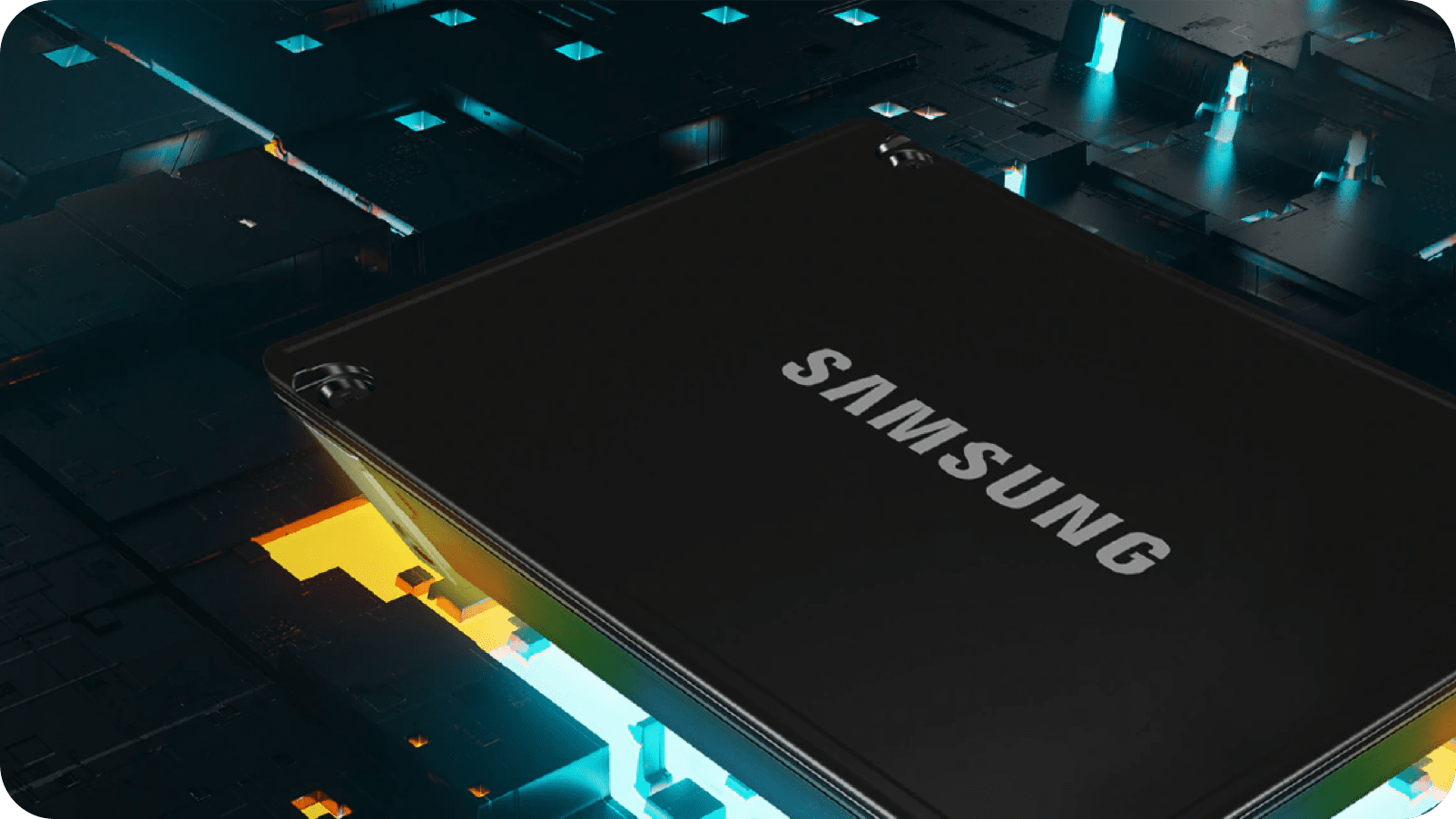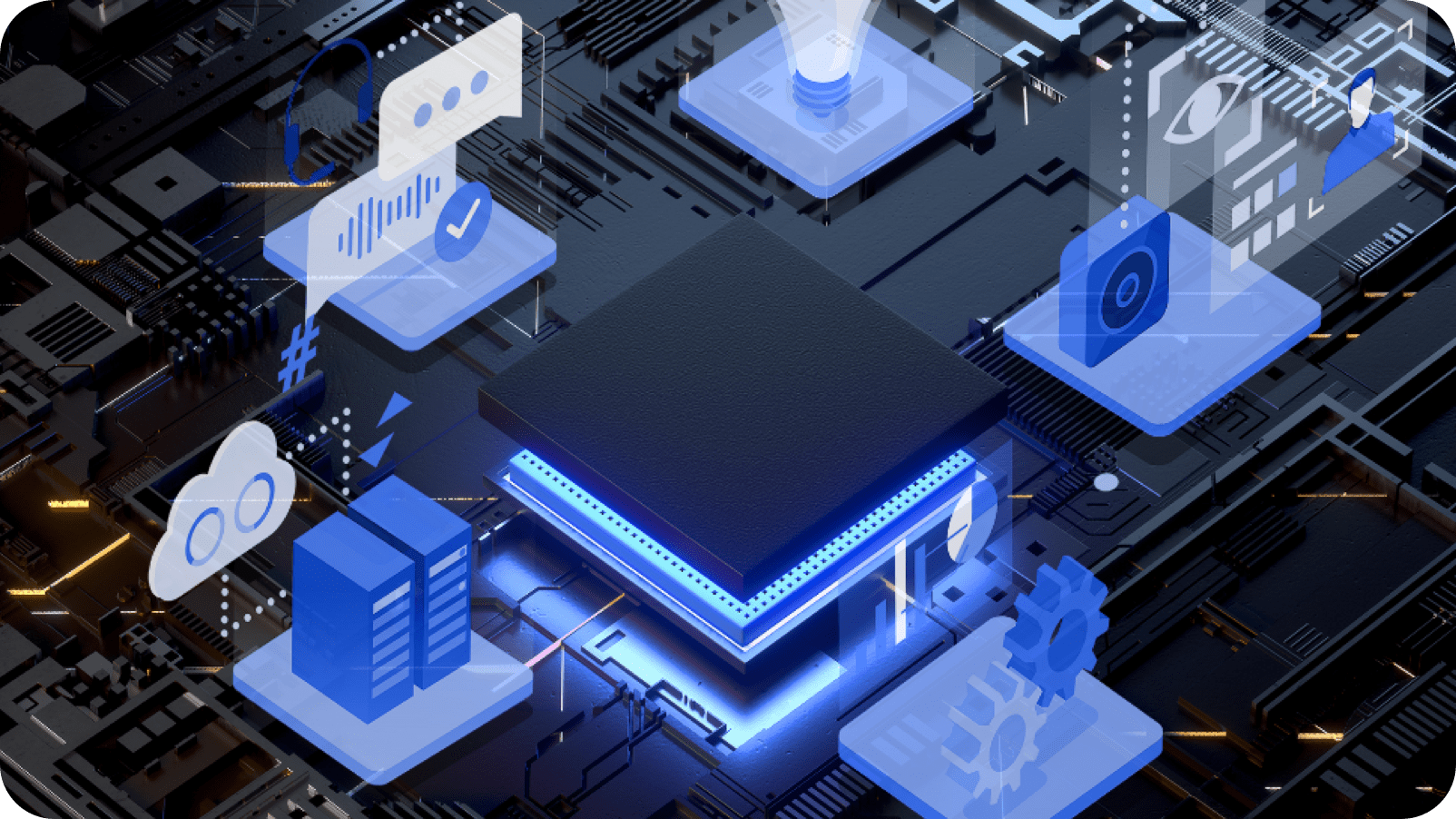Leads the research and development of memory products that significantly enhance the performance and power of memory systems in CXL memory fabric and AI compute through the rack scale hardware and software solutions.

The Memory Solutions Lab (MSL) is part of Samsung’s Memory Business Unit, the industry’s technology and volume leader in DRAM and SSD. MSL’s vision is to revolutionize CXL memory fabric and AI memory by addressing critical challenges and pioneering innovative architecture platforms. MSL work collaboratively with Samsung’s worldwide R&D Labs.
MSL is comprised of the following groups:
The Memory Solutions team’s CTO office drives MSL’s vision and technology strategy to identify business opportunities. By engaging with a diverse range of stakeholders, including customers, partners, universities, and the technology community, MSL pioneers the growth of the industry ecosystem, fostering collaboration and delivering complete solutions to address market needs.
The System Technology Group (STG) innovates memory solution architectures and system software for AI, CXL, and SSD applications. Through a collaborative approach of hardware-software co-design and advanced architecture modeling and simulation, STG is redefining performance, efficiency, and capabilities in next-gen AI, CXL, and SSD solutions.
The Datacenter Device Solutions team develops innovative memory device solutions helping shape the landscape of enterprise and cloud memory and storage architectures, delivering many “world’s first” memory products and features to major OEMs and CSPs.
Embedded Solution Software (ESS) is a leading developer of cutting-edge firmware solutions for embedded memory technologies, including CXL and SoC-based future memory solutions. ESS is dedicated to designing and delivering high-performance, reliable, and resource-optimized firmware that unlocks the full potential of these innovative memory technologies.
The Data Fabric Solutions team pioneers and creates comprehensive software solutions that optimize data flow efficiency, transformation, and performance for client’s data-intensive applications, leveraging Samsung’s world-leading SSDs, memory, and accelerators. They cater to diverse data fabric deployments.

3655 North 1st St. San Jose, CA 95134
3655 North 1st St. San Jose, CA 95134
3655 North 1st St. San Jose, CA 95134
9808 Scranton Road. 4th Floor. San Diego, CA 92121
3655 North 1st St. San Jose, CA 95134

Our core development focus is the host interface firmware layer that sits in the intersection of system software and flash management firmware. This key host interface firmware technology drives Samsung’s breakthrough V-NAND technology and enables our customers to power performance-oriented, demanding, enterprise-class applications ranging from hyper-scale data centers, to big data processing, to software defined virtualized storage arrays and infrastructures. In addition to host interface firmware, TED is also has responsibility to develop high level controller architecture and architecture models for early evaluation of next generation architecture concepts and emerging customer requirements.
TED has four teams that work closely to support enterprise and data center SSD end-to-end development and qualification support for US customers. Each team has their own R&R:
Engages in N+2 generation Enterprise/DC SSD controller architecture together with architectural evaluation of emerging and futuristic requirements from customers and specs/standards.
Engages in architecture and development of Enterprise SSD HIL Firmware for N+1/N Generation.
Owns Customer Firmware and Customer Design-In Support for the lifecycle of the products — from new qualifications to sustaining.
Owns SSD evaluation frameworks, test cases, continuous integration testing, and joint qualification of new and sustaining enterprise and datacenter SSD products.

3655 North 1st St. San Jose, CA 95134
3655 North 1st St. San Jose, CA 95134
3655 North 1st St. San Jose, CA 95134
9808 Scranton Road. 4th Floor. San Diego, CA 92121
3655 North 1st St. San Jose, CA 95134
Developing software and solutions for the private, public and hybrid cloud that leverage the innovations in Samsung memory technologies.

The lab is focused on developing software and solutions for the private, public and hybrid clouds, including applications and workloads that run on modern digital enterprises, by leveraging Samsung memory innovations.
The Team comprises of three groups.
Created in 2016, the Samsung Data Platform Team designs and implements a data platform built to handle high-performance workloads operating on unstructured data and not adequately handled by traditional storage solutions—examples include rendering video and graphics, vivarium photo and video data analysis, and industrial IOT applications, including machine learning. Interested parties may email dtc-sdpeval@ssi.samsung.com to schedule an evaluation of the platform.
The Datacenter Technology Taskforce focuses on building expertise in datacenter technologies, including cloud operating systems like OpenStack, by subjecting our memory products to realistic workloads. The results are used to drive innovations and improvements in our memory products.
The Global Open Source Team (GOST) focuses on open source contributions in IO subsystems, enabling optimal use of memory products in the ecosystem.

3655 North 1st St. San Jose, CA 95134
3655 North 1st St. San Jose, CA 95134
3655 North 1st St. San Jose, CA 95134
9808 Scranton Road. 4th Floor. San Diego, CA 92121
3655 North 1st St. San Jose, CA 95134
Developing future memory/storage controllers to support more efficiently next-gen computation requirements such as machine learning, deep learning, ADAS applications, and clouds computing.

Our current focus is to develop an advanced SSD controller integrated with computational accelerators for ML/DL workloads and data analytics via CXL and Ethernet interfaces.
We have three teams working on the following projects.
Controller for recommendation inference acceleration and enabling persistent memory for data center performance improvement via CXL interface.
Controller for SmartSSD that helps in accelerating database-oriented workloads.
Leading and exploring Chiplet technology, advanced PHY and mixed-signal IPs, HW-accelerator architecture, and industry standards.

3655 North 1st St. San Jose, CA 95134
3655 North 1st St. San Jose, CA 95134
3655 North 1st St. San Jose, CA 95134
9808 Scranton Road. 4th Floor. San Diego, CA 92121
3655 North 1st St. San Jose, CA 95134
Is SSD with CXL interfaces brilliantly stupid or stupidly brilliant?
Tue Sep 19 | 10:40am – 11:20am
CXL has garnered increasing attention from the industry, with a predominant focus on memory expanders utilizing DRAM-based technology. However, the discontinuation of Optane and the growing demand for extensive memory in new ML models have prompted the storage and system communities to urgently seek alternative solutions. In a keynote address last year, Dr. Ki presented compelling reasons for the storage community to seriously consider CXL adoption. This year, he continues the
discourse by delving into diverse NAND solutions integrated with CXL interfaces, highlighting their inherent advantages. These benefits encompass persistent memory, TCO-optimized tiered memory, high-performance small IO, data-centric computing, and more. Dr. Ki will provide in-depth discussions on practical use cases, technical challenges, and preliminary findings to enlighten the community about the immense potential of this technology. The aim is to foster awareness and
understanding of the transformative capabilities of CXL-based NAND solutions. Furthermore, the presentation will cover Samsung’s collaborative efforts with eco partners to establish robust hardware and software ecosystems. By actively engaging with various stakeholders, Samsung seeks to build an inclusive and sustainable environment conducive to technological advancement and environmental stewardship.
Link to SNIA
Video
A Memory Technology Continuum to Be Enabled by CXL
Presenter : Yangseok Ki, VP, Samsung Memory Solutions Lab
CXL is a buzzword, but still unfamiliar to many people in the industry. In this lecture, Dr. Ki will provide an overview of CXL, focusing on the potential and limitations of behavioral characteristics learned through Samsung’s development of various CXL PoCs. In particular, he will focus on the role of CXL as a common system fabric. He will explain how CXL accelerates the convergence of memory, storage, accelerators and networks for computing and creates a new continuum of memory
technology.
Video
Why Should the Storage Community Care about CXL?
Presenter : Yangseok Ki
The exponential growth in data volume and traffic across the global internet infrastructure is motivating the exploration of new architectures for data centers to achieve the demand for better performance, efficiency and total cost of ownership (TCO). One promising trend is to segregate the functional components of compute, memory, storage, and networking into pools and organize them as needed according to the specific needs of different workloads. This disaggregation and
composability will take us beyond the classic architecture of servers as the unit of computing.
Backed by a broad consortium of hyperscalers, equipment OEMs, chipmakers and IP vendors, Compute Express Link (CXL) is a new enabling technology for interconnecting computing resources that embraces existing competing technologies such as Gen-Z and OpenCAPI. Currently in Gen 3.0, CXL enables high-speed, low-latency links with memory cache coherency between processors, accelerators, NICs, memory, and storage.
In this keynote, Dr. Ki would like to share the opportunities and challenges that exist across hardware and software, with a focus on Samsung’s CXL memory technologies such as CXL memory expanders and memory semantic SSDs. In particular, he will share the direction Samsung wants to move forward with the storage community and suggest various collaboration opportunities.
Link
